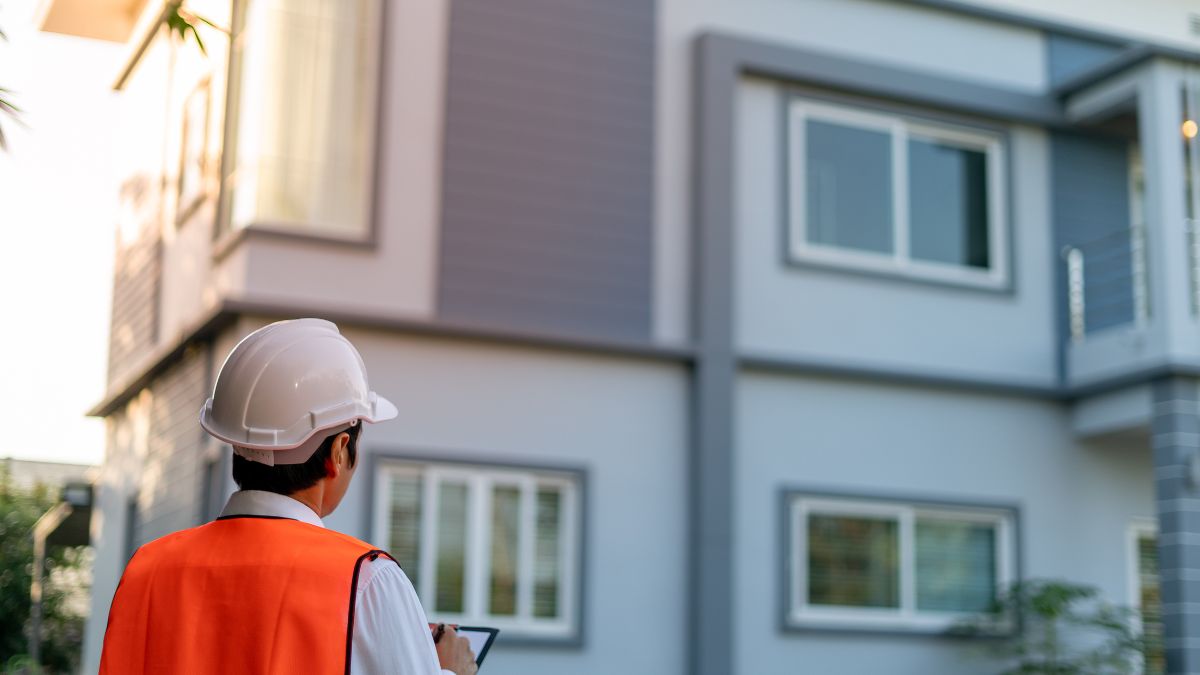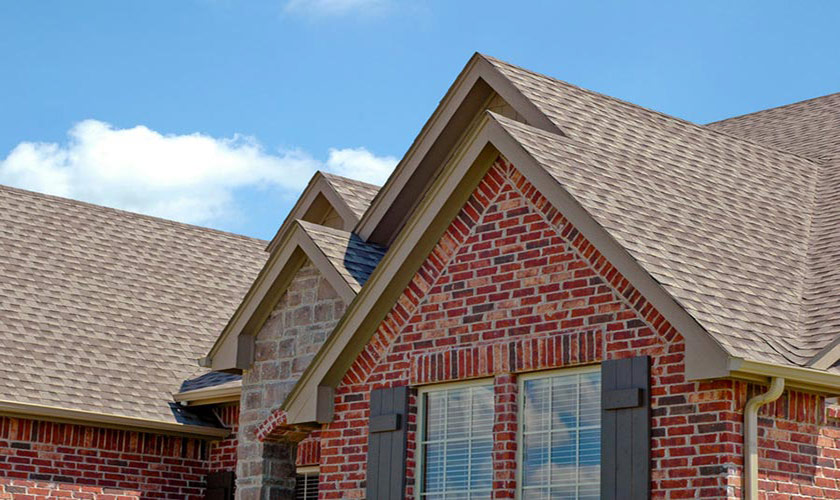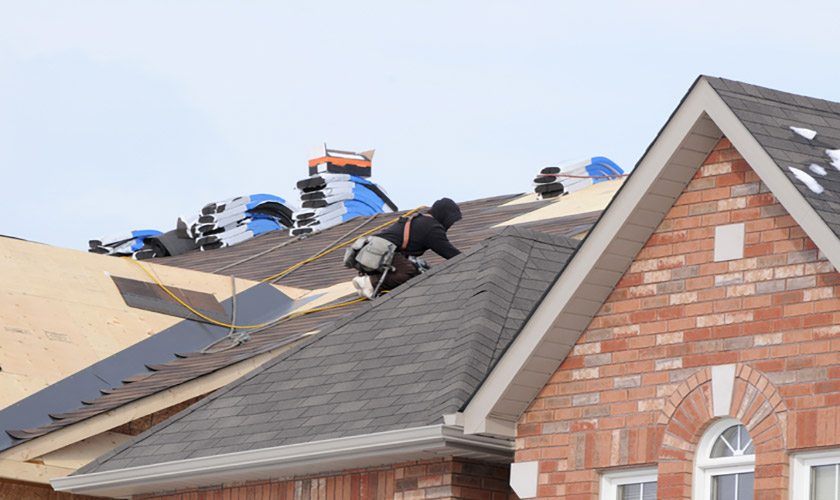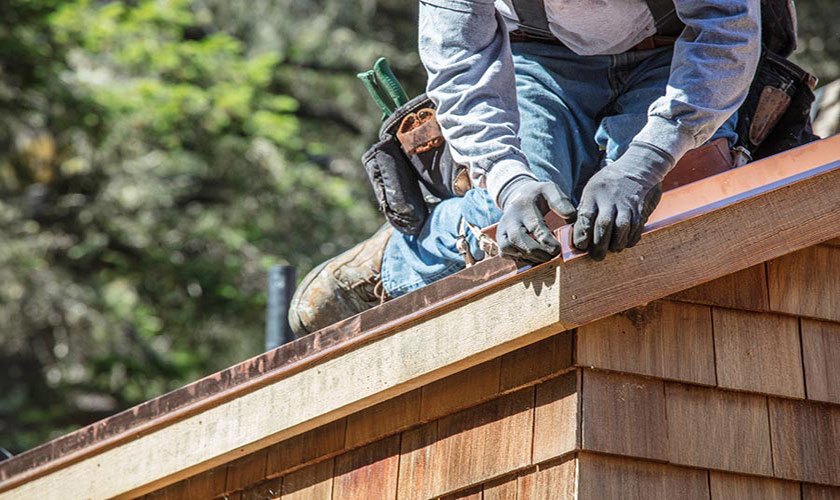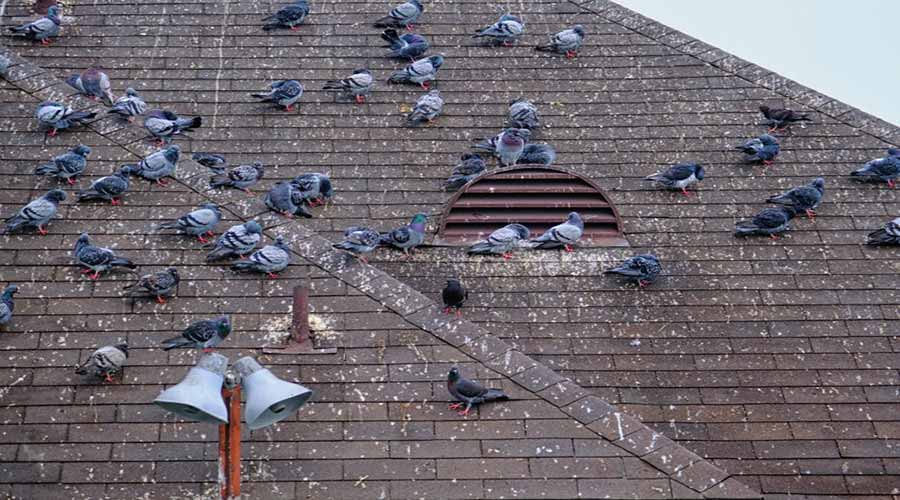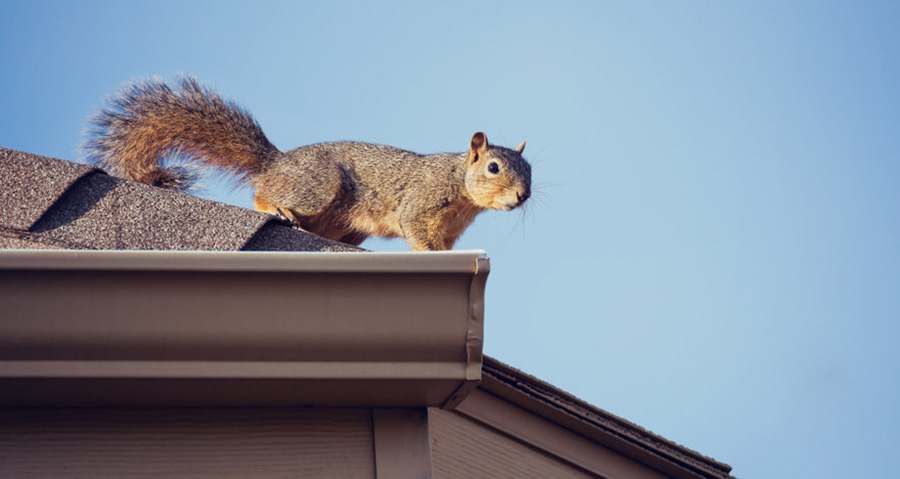
Squirrels are feisty, pretty, intelligent little creatures classified as pests because they love garden fruits and vegetables. I feel entertained watching them play and scurry around, but squirrels can become a nuisance when they access your roof.
To keep squirrels off the roof, trim tree branches near the roofline to create at least a 10-foot gap in between to prevent squirrels from leaping to the roof. Use predator guard on tree trunks and around electric poles, and don’t forget to secure cables and wires.
Squirrels are not necessarily dangerous to humans, but since they are friendly and playful, they remain unwanted guests who can become a significant nuisance and cause problems in and around the home.
How Do I Stop Squirrels From Jumping On My Roof?
There are a lot of tricks that may stop squirrels from jumping on your roof. Squirrel infestation will indeed cause you damage and less if not swiftly controlled.
Listed below are five ways to keep squirrels off your roof:
1. Pruning Of Tree Branches
Squirrels are jumpers, and overgrown tree branches allow them to leap from branch to roof. So, the surest way to keep squirrels off your roof is to ensure that any tree near your house has its branches cut off so that there is at least a ten-foot distance between the roofline and the nearest tree branch. It will make it impossible for them to leap as the distance will be too far.
2. Covering Electric Cables And Wires
Squirrels are excellent climbers as well. So when they can’t leap to the roof from the nearest tree, they may try to climb up the electric pole and use the electric cable to get to the roof.
To solve this problem, get at least two PVC pipes and cut them diagonally to enable you to slip them over the electric cable. When the squirrel tries to walk through the cable, the PVC pipes keep moving, making the cable sway from side to side. The animal will lose its balance and fall off. Over time, squirrels will give up on climbing your roof.
3. Use Of Scare Crows
Squirrels are food to birds of prey, e.g., hawks and owls, so buying several plastic owls and installing them on trees and the roof will scare away squirrels who will try to keep themselves and their young ones safe from any danger.
4. The Use Of Repellents
Every animal has that smell they can’t stand, as it may choke them, make them feel sick, or even spook them. For squirrels, this has to be predator urine parked in spray bottles.
Examples of predator urine include fox and coyote urine, whose smell mimics the natural odor of coyote and fox urine.
To be effective, spray the squirrel predator urine around the yard, garden, and even independent trees. The squirrels will get the smell and think prey is lurking and scurrying away.
5. Clearing Of Shrubs and Bushes
Squirrels do not like being in the open and hide in shrubs and bushes around the home.
And because squirrels can jump both vertically and horizontally, they become a menace dealing with them. To solve this problem, clear off any plants and shrubs near your wall and perimeter to prevent squirrels from hiding in them before climbing and jumping on your roof.
Why Do Squirrels Love The Roof?
Squirrels love the roof because they spend most of their time above ground, mostly on top of trees, where they play and munch on twigs and tree bark as a hobby to keep their teeth sharp.
In residential areas, roofs like trees present a safe place for squirrels to play and stay safe from predatory animals such as foxes, coyotes, and snakes.
Different types of squirrels exist, ranging from ground squirrels to flying squirrels to chipmunks. All these squirrels vary in fur color, but the most popular are the gray squirrels and the fox squirrel.
Squirrels belong in the wild, but they are known to live longer and thrive in captivity, and as much as they are cute and fuzzy, squirrels are known to be restless and can chew just about anything, edible or not.
Here is a list of signs that squirrels are on your roof:
- Banging and rustling in the roof/attic, especially early morning and late afternoon.
- A sudden foul smell of potent urine coming from above that was not there before.
- Claw marks on shingles that have been chewed.
- I found nests in the attic that are bigger than a rat’s.
- Droppings on the roof or attic that belong to a squirrel, etc.
Damages Squirrels Cause To A Roof
Squirrels may appear small and harmless, but the damage they can inflict on your roof fascia boards, eavestroughs, shingles, and wood beams can be massive.
- Squirrels build their nests in tree hollows in the colder season and on tree branches when the climate is warm. Still, as they play and linger on your roof, they will also chew through it as they are known for chewing through anything to get into your attic to make themselves at home where it is warm and safe.
- A destroyed shingle makes your roof susceptible to water and moisture. A bad roof will let in water, which may cause your home’s interior to grow molds and mildew.
- Squirrels are primarily drawn towards human settlements for food and shelter, but the bad thing about squirrels is that they are restless. If they access your attic, they will tend to chew on electrical wires, which may lead to accidental electric fires.
- To keep their nests in the attic warm and safe, squirrels will tear through the insulations for building material. Not only will they create dirt and debris, but they will also mess with the home’s insulation system.
What You Need To Know About Squirrels
Just like all other rodents, squirrels have four front teeth that do not stop growing, no matter what. The biggest reason squirrels keep munching, chewing, and gnawing is to keep these four teeth sharp and in check.
Here are the 5 most common types of squirrels in the US. Take notes of their behaviors and appearances so you know what to look out for!
| Type of Squirrel | Description |
|---|---|
| Eastern Gray Squirrel | gray or black fur and love bird seeds, so they often target birdfeeders in backyards, |
| American Red Squirrel | reddish fur with a white belly and usually stay in maple trees, roofs, and attics |
| Tassel-eared Squirrel | dark gray coat, pure white underbelly, rusty brown patch of fur on their back |
| Northern Flying Squirrels | light brown-colored fur, whitish fur on their belly, huge black eyes |
As they linger around the home, they encounter delicate and dangerous things like electric wires and cables. But because they do not know any better, squirrels will destroy them. The greatest reason they are labeled as pests is that they will chew whatever they come across, even when whatever they are chewing is not edible.
What Can I Use To Keep Squirrels Off My Roof?
Trimming branches and working magic on electric cables is not always enough in solving squirrel roof infestation.
It is always good to take several measures so that when one fails, the other does not.
To further prevent squirrels from climbing up poles and trees, you may want to use funnel-like squirrel baffle guards, which have wide surface areas and are mounted around the tree trunk/pole. It is to deter squirrels from climbing up trees and poles to access the roof.
How Do You Get Rid Of Squirrels?
To get rid of squirrels, you must first study and understand their habits so that you can employ tactics that work against them.
Squirrels can make your life a living hell as they are difficult to eliminate once they make themselves at home. It is because, aside from being leapers, squirrels can burrow through the fence, climb over, or chew through it.
Here are a few tactics that may help get rid of squirrels:
Do Not Feed Them
Every living thing loves food. “We eat to live” is the assumption, and squirrels love the smell and sight of food. They eat practically anything, so to keep away a squirrel infestation around your home, cease feeding them.
When you feed them, you send a message that they can depend on you for food, so even when you have leftover food that you would not mind having them eat, throw it away instead and make sure to dispose of all garbage as often as you can so that they do not become their leeway.
As a lover of birds, you might have the habit of hanging bird feeders around our compound to attract more birds, but as you attract birds, you also attract roaming squirrels who love feeding on seeds.
Seal All Entry Points
Squirrels can warm up to humans and sneak into homes through vents and cracks to make their nests in attics and crawl spaces.
To stop them from making your home their home, mesh and seal all entry points, no matter how small the space may seem. It is the surest way of preventing them from getting inside your home to cuddle up to the warmth.
Scare Them Away
Dogs and cats are great pets, but they also protect from pests and rodents such as squirrels. Your dog may even entertain itself by playing cat and mouse with squirrels who enter your compound.
Pest Control Units
At this point, you concede defeat and accept that you have done your best. If the above interventions fail in your quest to rid your home of the squirrels, the only remaining option is to call the pest control unit.
These chaps are professionals who have mastered the art of safely getting rid of animals regarded as pests and nuisances, and they may even help fix your roof if the squirrels cause damage.
What Smell Do Squirrels Hate The Most?
Squirrels hate the strong smell of peppermint and will try to avoid it as much as possible.
So planting peppermint plants in your garden will keep squirrels away from your garden, off your roof, and far from your home.
What Spray Keeps Squirrels Away?
Aside from plants, some chemical repellents keep squirrels away from your roof and garden.
Spraying your flower beds with capsaicin to keep squirrels from eating your flowers and plants can help keep them at bay because if their food supply is cut off, then they will have no reason to stick around and probably move on to the next home.
When they try eating flower bulbs that have been sprayed, the taste of the chemical repellent will taste awful in their mouth.
The problem is that when it rains, the unpleasant smell tends to wash away, so make sure to reapply the repellent every time it rains to ensure that the smell lasts until there is no more squirrel intrusion on your home.
How To Prevent Squirrels From Damaging Your Roof
When moving into a home in an area with squirrels, it’s best to arm yourself against these rodents before they come knocking.
Safety precautions against squirrel infestation go a long way in saving you unplanned bills regarding roof repair and additional utility bills. If the insulation is messed with, heat conservation within the home will prove futile.
And even when you have successfully eliminated squirrels in the past, it is also prudent to put measures in place that will help you just in case your home falls victim to another squirrel infestation.
- Prevent future damage on shingles and fascia boards by having a contractor install a drip edge on your roof. Metal edges are pieces of metal installed on the edge of the roof. Drip edges are not only a great way of making your roof waterproof, but they hold the shingles better, making it hard for squirrels to burrow through.
- Ensure that trees around the home are always trimmed just in case squirrels happen to be around. It’s good to practice and live up to the measures.
- If possible, cut down any tree near the house, and have a long-term plan never to plant trees close to the house because you know firsthand the inconvenience it can bring.
- Also, always be on the lookout for squirrels being in touch with your roof and attic to ensure they have not made a home there without your knowledge where they can damage wires and insulations.
- Keeping other pets who will scare squirrels away from your home is also a great idea.


